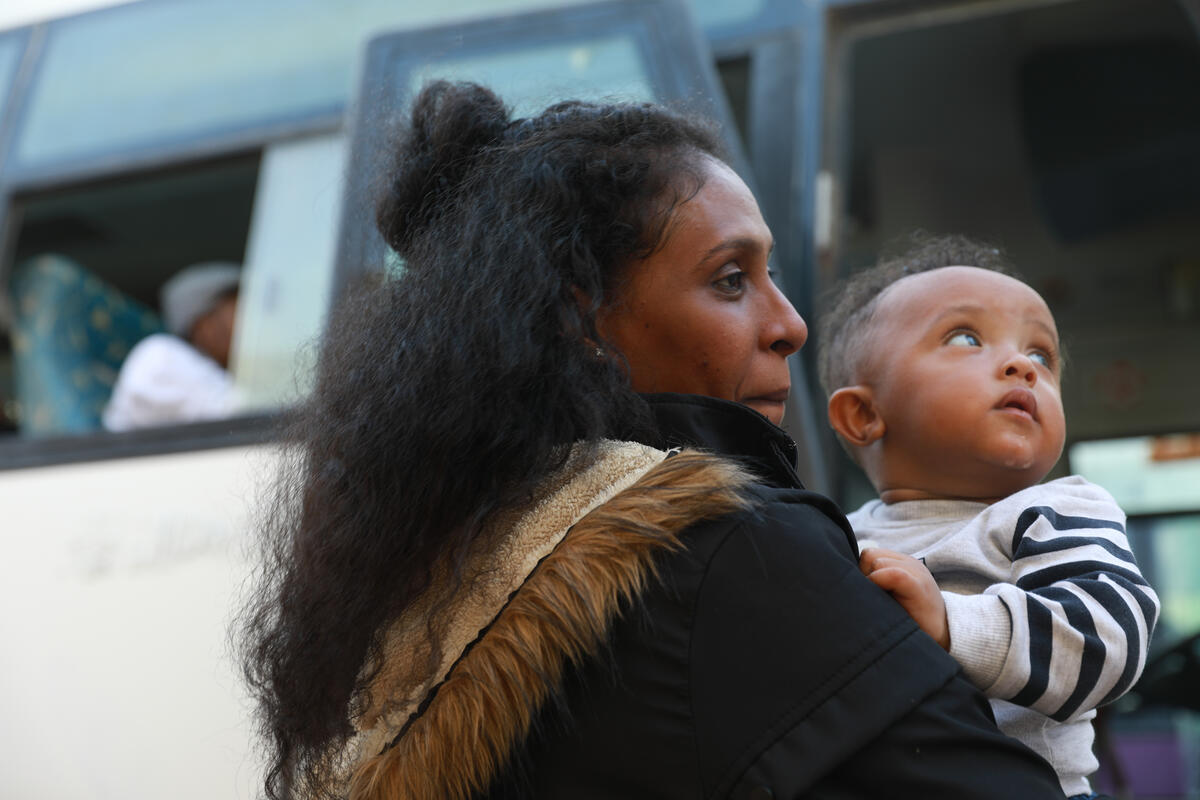UNHCR drivers pay heavy price in black week for UN refugee agency
UNHCR drivers pay heavy price in black week for UN refugee agency

GENEVA, December 13 (UNHCR) - In the space of a week, three UNHCR drivers have been killed in the line of duty - one shot in southern Chad and two slain in the deadly bomb attack on the United Nations in Algiers.
It's a terrible toll for this group of dedicated humanitarian aid workers who across the world navigate their vehicles over hostile territory, rough tracks and crowded urban streets to help the UN refugee agency carry out its vital work to protect and assist those in need.
"I really think our drivers are the great unsung heroes of UNHCR," said Assistant High Commissioner for Operations Judy Cheng-Hopkins. "They risk their lives in all kinds of remote areas where their local knowledge is essential, and it's their resourcefulness that helps us do our work better," she added.
Normal activity came to a standstill at the UN refugee agency's headquarters in Geneva on Thursday afternoon as staff packed the atrium to observe a minute of silence for fallen colleagues in Algiers - drivers Karim Bentebal and Nabil Slimani. Driver Mahamat Mahamadou was killed in an unexplained shooting incident in Chad last week.
Assistant High Commissioner for Protection Erika Feller led the minute of silence as High Commissioner António Guterres was travelling on mission to the Democratic Republic of the Congo.
Since 1993, 10 UNHCR drivers have lost their lives serving the organization - in Afghanistan, Bosnia, Kenya, Rwanda, the Democratic Republic of the Congo, and in the last few days Chad and Algeria. Four drivers have been killed so far this year.
Across the globe, some 895 UNHCR drivers based in capitals, field offices and sub-offices fan out along the streets, dirt roads, tracks and open country carrying staff and goods to distant refugee camps, isolated settlements of displaced people, detention centres, reception centres, airports and government buildings to name just a few locations. They drive through snow, monsoon rains, sandstorms and fine weather too.
But it's widely recognized that UNHCR's drivers do far more than drive, keep their vehicles in good order and passengers safe.
UNHCR's chef de cabinet Athar Sultan-Khan worked as UNHCR's representative in Algeria in 2000-2002 during a particularly difficult security period when staff were often confined to working and living in a hotel. He worked personally with both drivers killed in Tuesday's blast.
"Karim and Nabil were terrific people. They were our eyes and ears when security restricted our movements and they were a lifeline for the operation," said Sultan-Khan. "We relied totally and utterly on them during this period. They advised on local culture, the political situation and went far beyond their standard job as drivers," said Sultan-Khan who was shocked by the bombing and devastation caused to colleagues and their families.
As frontline staff, drivers are indispensable, working long hours under frequently difficult circumstances.
The High Commissioner has sent his condolences to the families of the staff members who lost their lives in the past week.
By Jennifer Pagonis in Geneva








